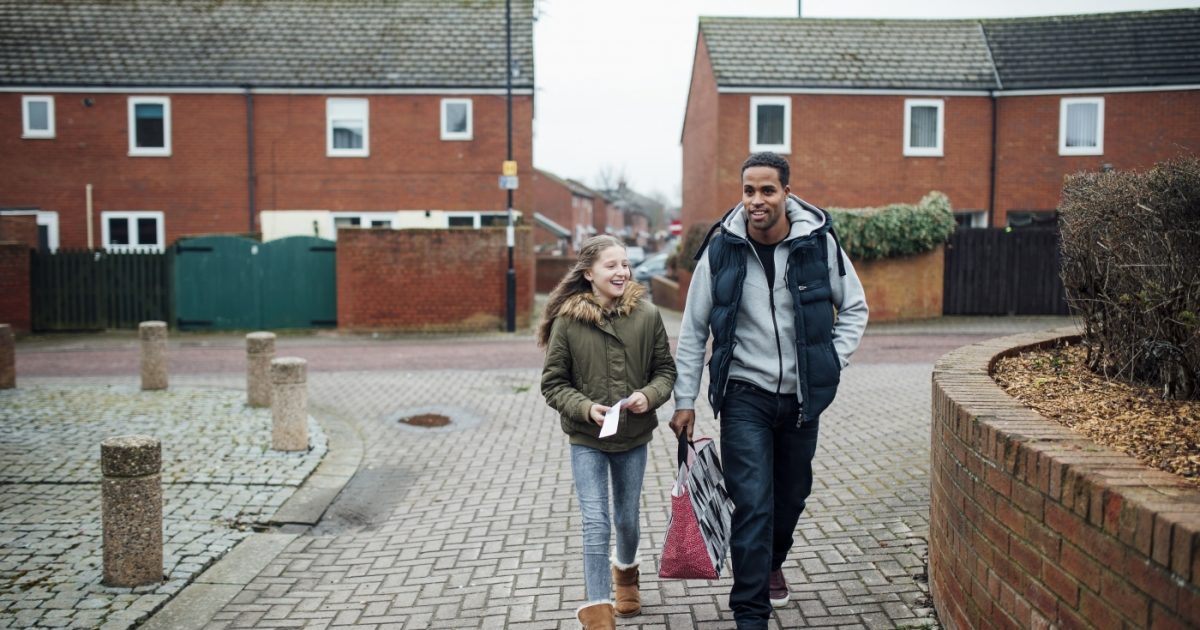The UK’s lack of social housing has brought on a disaster of excessive rents and evictions. It is time to develop a brand new era of social properties.

England’s housing disaster has reached boiling level. Removed from offering steady foundations on which we are able to construct our lives, our housing system is a supply of insecurity and hardship for hundreds of thousands. Hovering non-public rents and the federal government’s failure to abolish ‘no fault’ evictions imply that round 1,000,000 tenants have been evicted or are liable to homelessness this winter. 2.25m properties in England are unsafe, and 900,000 have damp or mould. Home costs are falling, damaging fairness is rising, and development charges are diminishing. 3m households face sharply rising month-to-month mortgage payments, and social tenants can be hit with a 7% hire rise. And homeownership is slipping additional out of attain for 1000’s extra, putting but extra demand on the non-public rented sector (PRS).
Even previous to the present disaster, there have been 8.5m individuals with unmet housing wants — residing in properties which might be overcrowded, unsuitable, unaffordable or in poor situation — 4.2m of whom could be extra suitably housed in a social residence. For many years our system has handled properties primarily as monetary property. Different locations, like Vienna, have prioritised top quality, safe and reasonably priced housing; there isn’t any cause why we are able to’t do the identical. That’s the reason the Houses For Us Alliance — a brand new car for teams and organisations throughout the housing motion — has fashioned to develop coverage and marketing campaign for options to the housing disaster.
On the coronary heart of our damaged housing mannequin has been a speedy shift within the make-up of our properties over latest many years. Firstly, Proper to Purchase and the restrictions it imposes on councils has meant the lack of 1.4m socially rented properties since 1980. Secondly, there was a corresponding rise within the variety of households privately renting, which has greater than doubled over the identical interval. Thirdly, hovering home costs have decreased the proportion of householders, locking hundreds of thousands of younger individuals out of residence possession, trapping them within the PRS, and accelerating the switch of wealth to London and the south east.
Determine 1: For the reason that introduction of Proper to Purchase, the proportion of socially rented properties in England has virtually halved, and for the reason that early-2000s the proportion of PRS properties has virtually doubled
This move of transactions — with big numbers of properties switching from the social sector to the PRS — lies on the coronary heart of the current disaster. It prevents these on council ready lists, languishing in typically horrendous short-term lodging, from accessing a protected and safe residence of their very own. This produces extra demand within the PRS, resulting in rising rents and decrease high quality. In flip, the overheated PRS — propped up by a tax and regulatory system designed above all to encourage landlordism — has squeezed the financial savings of would-be owners whereas home costs have soared.
In brief, the shortage of social housing skews all the system. All of the whereas, taxpayers spend huge quantities of cash propping it up. New figures compiled by NEF present that the state is forecast to spend 5 instances as a lot on housing help to subsidise PRS landlords between 2021 – 22 and 2025 – 26 as it should on constructing reasonably priced and social properties over the identical interval.
As an alternative of addressing the basis reason behind this damaged housing mannequin, latest governments have doubled down. Specializing in additional stimulating market demand by pumping billions into Assist to Purchase and slicing stamp obligation has turbo-charged home worth rises. What restricted provide aspect reforms have been launched, haven’t but had the influence wanted. NEF evaluation reveals that, since councils have been freed to borrow to construct in 2018, solely 7% of the required quantity of social housing has been constructed. Whereas growing provide is significant, research have proven that this can, by itself, have restricted progress in making housing extra reasonably priced. And, even when (now non-mandatory) home constructing targets are met the UK would blow its total carbon finances.
Determine 2: Social housing provide in England has barely improved nor come near assembly want since native authority reforms in 2018
With the dysfunctionality of our housing mannequin reaching breaking level, this authorities should develop a brand new era of social properties, whereas driving up vitality effectivity requirements in a higher regulated non-public rented sector. To additional this, the Houses For Us Alliance is creating a variety of revolutionary proposals to orientate coverage round a central goal: enabling social landlords to retrofit, improve and purchase non-public rented properties — repurposing them on a transformative scale to ship a brand new era of social properties. Doing so would have a number of advantages, not least growing provide within the social housing sector whereas concurrently driving demand down within the PRS, and offering landlords wishing to promote their properties with an exit technique.
NEF and the Houses for Us Alliance will now develop a sequence of ‘carrots’ and ‘sticks’ that may encourage this transformation. After all we should construct new properties, significantly inexperienced social properties. However alongside this, upgrading and repurposing non-public rented lodging to create a brand new era of social housing provides a transparent path to assist repair our damaged housing system.
Picture: iStock/DGLimages

